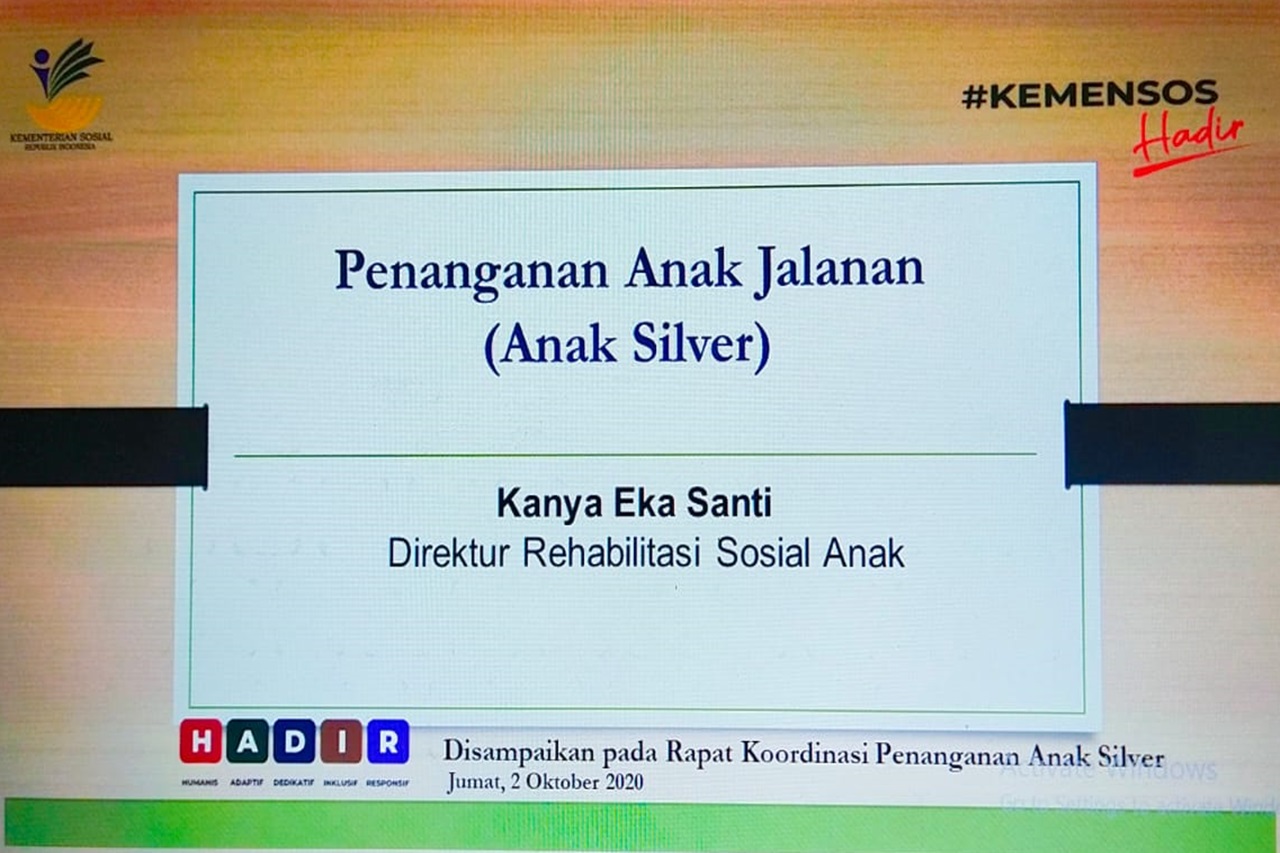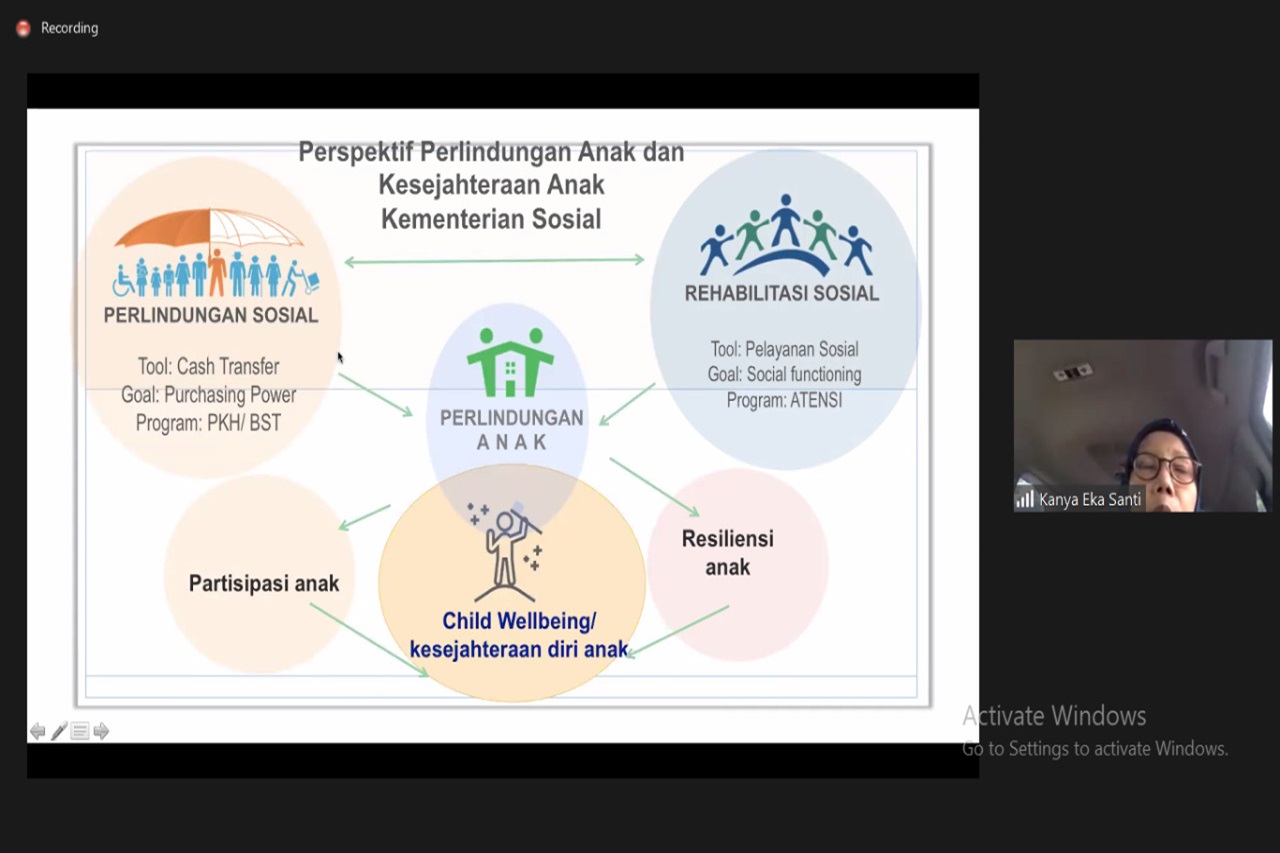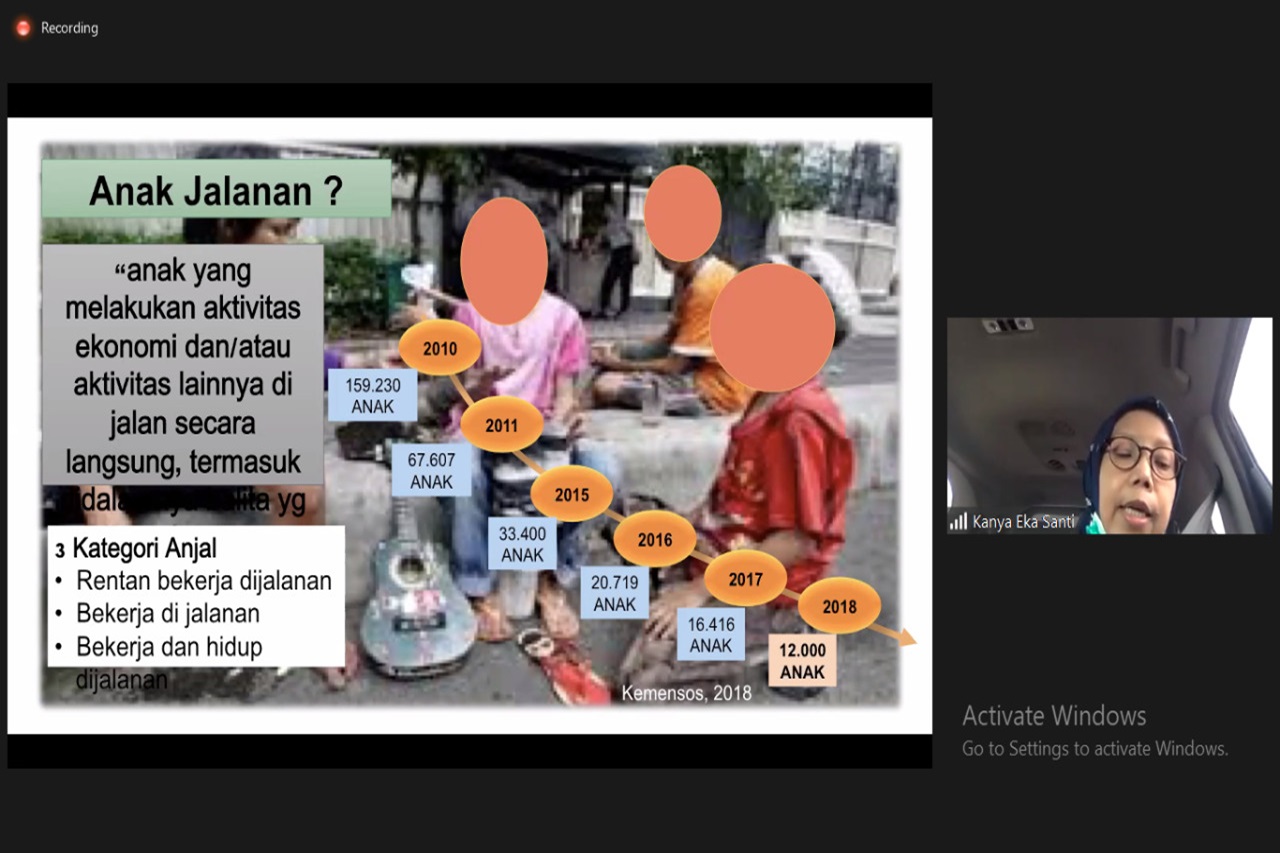JAKARTA (October 2, 2020) - The Ministry of Social Affairs together with relevant ministries and institutions in child protection have succeeded in reducing the number of street children in Indonesia through the program "Towards a Street Child-Free Indonesia" in 2016. This was then supported by the "Social Movement Towards a Street-Child-Free Indonesia". " in 2017.
The Director of Social Rehabilitation for Children of the Ministry of Social Affairs, Kanya Eka Santi representing the Director General of Social Rehabilitation, conveyed the success of the program in a virtual Silver Children Coordination Meeting organized by the Ministry of Women's Empowerment and Child Protection (KPPPA).
Silver children are street children because children carry out economic activities and or other activities on the road directly. They are vulnerable to working on the streets, working on the roads and working and living on the streets.
"Good news from the local government, currently 15 provinces already have regional regulations regarding the handling of street children so that they can reduce the number. However, we are aware together in this Covid-19 pandemic situation, many families are experiencing economic difficulties, thus encouraging children to return to the streets, " said Kana.
Furthermore, the phenomenon of street children based on the Integrated Social Welfare Data (DTKS) in 2020 shows 8,320 children are in Street Child Welfare Institutions. When juxtaposed with the data on children who are victims of economic exploitation, there has also been a high increase in the midst of the COVID-19 pandemic as well as the other clusters of Children in Need of Special Protection (AMPK), including silver children.
The Ministry of Social Affairs recommends mapping the issues of children, families and communities so that a comprehensive handling of silver children can be realized.
"Relevant ministries and institutions must also conduct a mapping of the risk factors that exist in the community, namely poverty, increasing unemployment, inadequate housing. In addition, the culture of violence in the community and the use of illegal drugs," explained Kanya.
Mapping of protective factors must also be carried out to prevent the emergence of silver children, including children's emotional and social abilities, parental knowledge about parenting and child development.
Kanya added that the mapping should also include the ability of parents or caregivers to manage daily life and manage stress, support positive relationships and accessibility to basic needs fulfillment services.
"The Ministry of Social Affairs has carried out efforts to handle children's social problems by combining strategic programs, namely through the Family Hope Program (PKH), Non-Cash Food Assistance (BPNT). Cash Direct Assistance (BLT)," said Kanya.
Commissioner of the Indonesian Child Protection Commission (KPAI), Susianah Affandy conveyed the facts behind silver children. At first their modus operandi was donation box for orphans, even though they were begging and usually asked by their parents to help the family's economy. In fact, children who want to follow orders to become silver children are considered obedient children compared to children who refuse.
"Another fact from silver children is that they get ideas from role models, namely senior street children, mime demonstrations and statues in Kota Tua. In terms of education, they are the same as street children who drop out of school because the school environment is not friendly," said Susianah.
Representative from the Directorate of Early Childhood Education (PAUD) of the Ministry of Education and Culture, Murtiningsih, expressed the support that has been given to children and parents. "We have carried out dissemination, providing guidebooks and story books as well as webinars related to PAUD," said Murtiningsih.
In terms of silver children's health, representatives from the Directorate of Family Health, Ministry of Health, were present on this occasion. "The Ministry of Health supports efforts to handle children's health problems through strengthening health services at the Puskesmas. Street children including silver children and children in LKSA care can still get the right to fulfill health and protection in the midst of the COVID-19 pandemic," said Ribka.
The recommendations for the coordination meeting on the handling of silver children were delivered by the Deputy Assistant for Child Protection from KPPPA's Violence and Exploitation, Valentina Ginting. "Today's recommendations include ministries/agencies to empower families, especially in good parenting and preventing exploitation of children for economic activities as well as strengthening policies to support the use of free time for children who study at home," said Valentina.
Furthermore, ensuring that Indonesia is free from street children and the worst forms of child labour. The campaign for the dangers of using screen printing paint for the health and safety of children's lives, both directly and through the use of social media, must continue to be carried out by all parties so that silver children can be handled.
 English
English
 Bahasa
Bahasa



